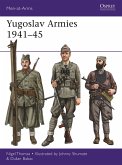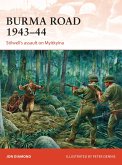The partisan war in the Soviet Union from 1941 to 1944 has been the subject of considerable political manipulation in the decades following 1945. In great part this was due to the need to project the image of a country united behind Joseph Stalin and the Communist regime when the truth was much more complex than that. The opening weeks of Operation Barbarossa had exposed the lack of unity in the Soviet Empire as nationalist and anti-Communist groups emerged in the western provinces such as Belo Russia, Galicia, Bukovina, Ukraine and the Baltic states of Latvia, Lithuania and Estonia. Consequently it was vital for the survival of the Soviet Union that such groups were countered in situ and that the authority of Moscow was maintained in what were known as the Occupied Territories. During the summer of 1941 plans, dormant since the 1930s, for the conduct of partisan warfare behind the lines of an invading force were resurrected. The plans were intended to make life for the invaders as problematic as possible by acts of sabotage, but most important of all to maintain the physical presence of Soviet authority.
Bitte wählen Sie Ihr Anliegen aus.
Rechnungen
Retourenschein anfordern
Bestellstatus
Storno









